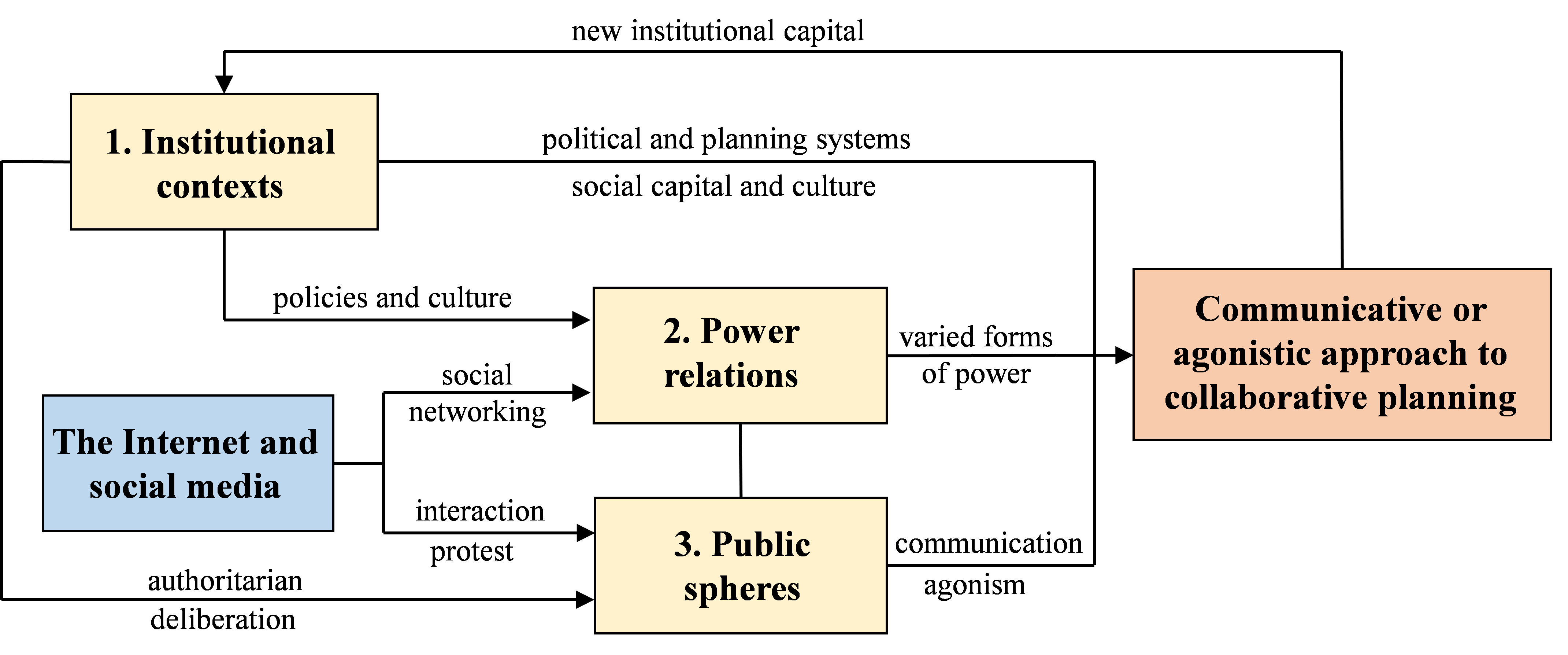Research
This project develops three novel tracks for examination and reconceptualization of collaborative planning. The first analyzes how Chinese political and planning systems, social capital and culture affect the interactive processes. The second applies network theory and social network analysis to analyze various types of power relations between government, planners, civil society and citizens. The third identifies various forms of online public spheres and how they interact with offline public spheres to affect communicative and agonistic approaches to collaborative planning.

The research integrates recent theorizing and approaches in the fields of media studies (e.g., online public spheres), network science (e.g., social network analysis), and political science (e.g., authoritarian deliberation) into the domain of urban planning. It employs a mixed-methods approach, combining fieldwork, critical discourse analysis, social media data analytics, and social network analysis to investigate a wide range of case studies. Data collection involves in-depth fieldwork, including interviews, survey and observation, as well as social media scraping. Critical discourse analysis is employed to explore how Chinese political and planning systems, social capital and cultural factors influence interactive processes and whether new institutional capital emerged during these processes. Social media data analytics and social network analysis are used to measure various forms of power relations generated by social media platforms. Additionally, computer-assisted content analysis and statistical analysis are utilized to identify factors that drive citizen participation both online or onsite, and to examine the quality and forms of online public spheres and their interaction with offline public spheres to effect collaborative planning. A systematic literature review support the reconceptualization of collaborative planning theory.
The case studies focus on urban regeneration , the community garden movement, the river chief system, and environmental protection practices in Beijing, Shanghai, Guangzhou, Shenzhen, Wuhan, Chongqing, and other Chinese cities. These case studies showcase a variety of collaborative practices, which may adopt the community planner system, co-creation committees, or public participation mechanisms in the planning process. They also reflect the impact of different local institutional contexts, such as the hierarchical political structures or more robust civil society dynamics. Moreover, these case studies illustrate the influence of digital platforms (e.g., social media, and Planning Support Systems) on power relations and public spheres within planning practices.


